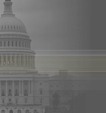Chapter 7 is that part of the Bankruptcy Code that deals with liquidation of debt. It is the most common type of bankruptcy and under chapter 7 an individual seeks to wipe out (discharge) all debts which are allowed to be liquidated with no repayment to the creditors.
The goal of chapter 7 bankruptcy is to provide individuals with a fresh start by wiping out all dischargeable debts including medical bills, credit card bills, personal loans (not guaranteed by a government agency), judgments obtained by creditors prior to the filing of a bankruptcy petition, business related debts, and commercial and residential leases.
Non-Dischargeable Debts
Under the Bankruptcy Code certain debts cannot be wiped out. They are classified as non-dischargeable debts and include:
•Alimony, maintenance, and child support obligations
•Student loans (except in extreme hardship cases)
•Fines, penalties, and criminal restitution
•Debts incurred as a result of intentional injury to a person or property
•Taxes owed governmental authorities
If your only debts are of the non-dischargeable classification, chapter 7 will not be an alternative, but as you will see later, chapter 13 might be an alternative.
The Chapter 7 Process:
If after a consultation with one of our attorneys, you reach the conclusion that a Chapter 7 bankruptcy is your way out of debt, you will provide us with certain documents (i.e. last two years of tax returns, recent pay stubs, copies of all your debt statements) so that we can prepare the Chapter 7 petition.
Upon completion of the petition we will file the document with the Bankruptcy Court Clerk’s Office.
Upon the filing of the petition all creditors are restrained from taking any additional action to recover the debt. This restraining act is called a bankruptcy stay. The stay remains in effect throughout the bankruptcy process.
Approximately 30 days after the filing of the petition you will appear with a member of our firm at a meeting with the Chapter 7 Bankruptcy Trustee assigned to your case.
At this meeting, which will last approximately 15 minutes, the Trustee will review your petition and ask you a few questions concerning your expenses and income.
At the conclusion of this meeting, assuming the Trustee requests no further information, your case will be closed. 60 days after the meeting, if no objections from your creditors have been filed with the Court, you will receive your discharge of all your dischargeable debts.
CALL LIN LAW GROUP TODAY FOR YOUR FREE CONSULTATION!!!
CLICK ON THE FOLLOWING TABS FOR MORE INFORMATION












